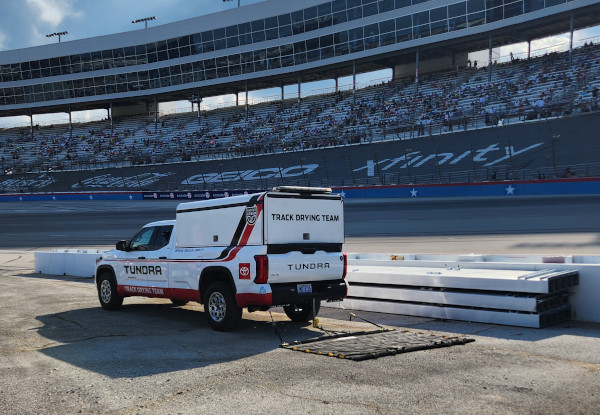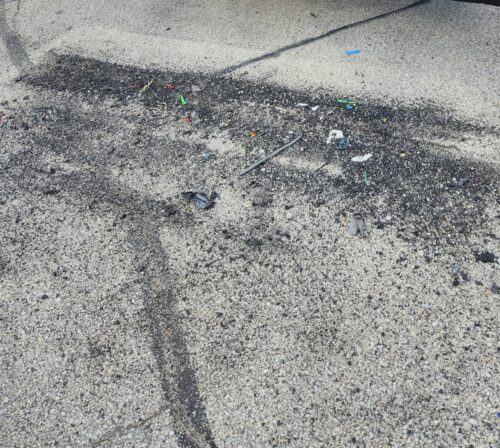Regular removal of foreign object debris (FOD) such as debris, dirt, and rubber build-up from the track surface is essential for upholding optimal grip and driver safety, particularly in high-performance racing environments.
However, the process of removing these materials generates waste that must be managed in an environmentally responsible manner to mitigate any negative impacts on the surrounding ecosystem.
Suggested Resources
Check out our article on Motor Speedway Track Maintenance.
Need some professional grade sweeping equipment? Check out our FOD-Razor® MotoSweep™, our PowerBar™ Magnet Sweepers, or our TracSweep® Pull Behind Rotary Sweepers for inspiration.
Sweeping
The issue of vehicle exhaust emissions should be of significant concern to track maintenance operators. They play a key role in contributing to air pollution levels, which can negatively impact air quality, human health, regulatory compliance and public image.
In order to mitigate these challenges, it is critical to adopt a sustainable approach by utilizing low-emission vehicles for various track maintenance tasks.
For instance, electric vehicles offer a cleaner alternative to traditional gasoline-powered vehicles, as they produce minimal or zero tailpipe emissions during operation, thus significantly reducing the overall carbon footprint associated with track maintenance activities.

Moreover, when considering the utilization of sweepers for track cleaning and debris removal, the choice between tow-behind sweepers and truck-mounted sweepers can have significant environmental implications.
Tow-behind sweepers present distinct environmental advantages, particularly in terms of reduced fuel consumption and emissions. For instance, they are designed to be pulled by a separate vehicle, rather than having their own dedicated engine or fuel system. As a result, they do not generate direct emissions.
Disposal
Once a sweeping operation is complete, try segregating different types of track debris to facilitate recycling or repurposing, wherever feasible.
For instance, rubber buildup from tire wear, while challenging to manage, can be repurposed in various ways, such as forming the base material for running tracks or producing rubberized asphalt for road construction.

This applies to resurfacing, too. Recycling or reusing old resurfacing materials can further minimize waste generation and promote circular economy principles within track maintenance operations. In addition, sustainable resurfacing materials, such as recycled asphalt or innovative low-emission compounds, offer eco-conscious alternatives that reduce the environmental footprint of track maintenance activities.
For instance, you can recycle used resurfacing materials on-site through a process called Hot in-Place Recycling (HIR). These processes involve heating, softening, scarifying/hot milling, mixing, placing, and compacting the existing pavement. In addition, rejuvenating agents and additives can be integrated into HIR mixtures to enhance the characteristics of the recycled pavement.
In addition, waste management programs must encompass proper disposal methods for non-recyclable materials, such as dirt and other non-biodegradable waste.
Cleaning
Using environmentally friendly cleaning materials for track maintenance is often safer for the workers who handle them. These cleaning agents, formulated with biodegradable components and reduced volatile organic compound (VOC) content, effectively remove dirt and rubber residues while limiting their potential ecological harm.
Examples include biodegradable degreasers, eco-friendly all-purpose cleaners, non-toxic solvent replacements, biodegradable track surface cleaners, water-based cleaners, biodegradable soaps and detergents, and other green cleaning products.
They typically have lower toxicity levels, reducing the risk of harmful exposure to chemicals for both humans and animals. They also help motor speedways comply with environmental regulations and demonstrate their public commitment to sustainability and responsible stewardship of the land.
By incorporating these solutions into their maintenance practices, motor speedway track operators can work towards minimizing their environmental impact while effectively maintaining the track surface for a safe and sustainable racing environment.
